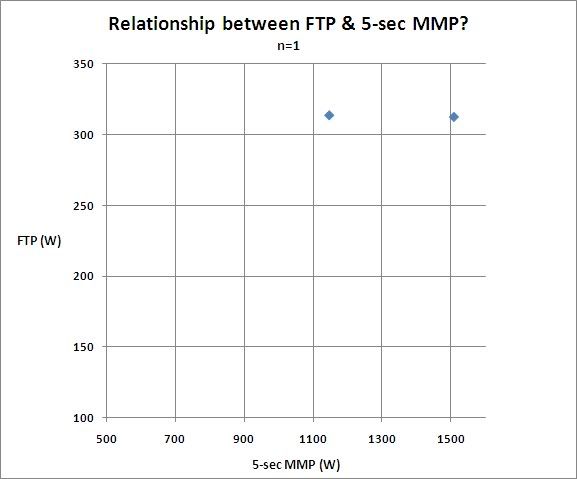In Reply To:
By saying "change in" you implied that the data weren't cross-sectional in nature.
I see your point. "Difference in" would have been a better choice of words.
In Reply To:
I would take the same approach in
expressing the link between 59 and 60 min power. That is, if all I had were cross-sectional data, I would attempt to control for confounding variables such as body mass (although partial correlation would actually be a better method than a per ratio standard).
My point, though, is that if you remove all confounding variables, which strictly speaking, all training adaptations are, what are you left with? It isn't the 59 minute power that causes the 60 minute power, they are both caused by the common set of training adaptations.
I should say at this point, I don't think strength training is going to make a big difference to FTP, if indeed it makes any difference at all. It's just that many of the arguments as to
why it doesn't, I don't find all that compelling. The most common argument I've seen is that the forces involved are much less than maximal, but it isn't intuitively obvious why someone with a greater maximal strength wouldn't find it much easier to repeatedly exert the same smaller force than someone with lower maximal strength. Our intuition doesn't remove bodyweight from this. When I encounter people in everyday life who are really strong, and apparently also have a greater ease of lifting lighter weights, I don't start asking them their bodyweight, work out their power to weight ratio and become less impressed. Instead, I just mentally register that they can outperform me for both heavy weights and light weights, and that there seems to be a link between the two things.
Another argument is that we understand the training adaptations that lead to improved FTP, and we understand the training adaptations arising from strength training, and there is no commonality. However there must be
some commonality, because I've seen studies mentioned where untrained subjects have improved their FTP through strength training. It may well be the case, though, that the return on training is so small that it is swamped by the effects of more appropriate training in trained subjects, but this isn't an argument I've seen made against strength training.
I'm also not convinced that studies are sensitive enough to find any possible link if the potential increase in FTP is small, e.g. <1%. This problem is discussed in chapter 16.4 here, particularly 16.4.3.1:
http://www.ausport.gov.au/...46539/16Complete.pdf "In effect, most intervention studies are able to detect only large differences in performance outcomes. Changes that are smaller than this large effect are declared to be ‘not statistically significant’ and are dismissed."
"Even though ‘worthwhile’ performance differences are larger than the tiny margins considered important by athletes, these changes are still outside the realms of detection for many of the studies commonly published in scientific journals."
